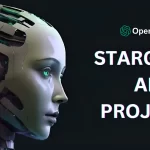
Navigating 2025: Key Trends Shaping Enterprise Technology and AI Integration
December 13, 2024The enterprise technology landscape is poised for substantial transformation as we head into 2025. Below is a concise analysis and synthesis of the key trends and predictions shaping the future of enterprise technology and artificial intelligence:
Enterprise Technology Predictions for 2025
1. Software Vendors and Consumption-Based Pricing
- A shift towards usage-based pricing will dominate, with 10% of enterprise software costs tied to consumption models.
- Companies will pay for actual usage rather than fixed subscriptions, aligning software costs with resource utilization, similar to cloud computing.
2. Generative AI Use Case Selectivity
- CIOs will focus on high-ROI applications of generative AI, prioritizing impactful use cases over exploratory implementations.
- Strategic deployment will balance resource allocation against measurable business value, steering away from indiscriminate experimentation.
3. Consolidation of IT Vendor Contracts
- Enterprises will streamline their IT service providers, centralizing operations with key vendors to mitigate complexity and optimize costs.
- This approach reflects a push to simplify existing IT environments, reducing redundancies and administrative overhead.
4. Continued Hyperscaler Investments
- Cloud giants (AWS, Microsoft, Google Cloud) will significantly expand data center infrastructure to meet rising AI workload demands.
- Partnerships like Microsoft-BlackRock and Nvidia highlight the escalating financial stakes in AI-oriented infrastructure development.
5. Agentic AI: The Emerging Workforce
- Agentic AI systems will act as workforce multipliers, functioning autonomously alongside human employees.
- The integration of these AI agents promises exponential productivity gains as they collaboratively communicate and operate.
6. Accelerated Generative AI Maturity
- Generative AI strategies will mature, shifting from generalized applications to role-specific, targeted implementations.
- Enterprises will refine risk mitigation approaches and leverage lessons learned for more sophisticated deployments.
AI: Embedded Everywhere
- AI is evolving into an invisible enabler, comparable to electricity or HTTP, seamlessly optimizing experiences across sectors like healthcare, education, and urban planning.
- Deloitte emphasizes that businesses must align their strategies, architecture, talent, and data infrastructure to fully capitalize on AI’s potential.
Implications for Enterprise Leaders
- Strategic Adaptation: Leaders must refine their focus on high-value AI applications, integrating them into core operations while avoiding overreach.
- Infrastructure Readiness: Investments in scalable, AI-ready infrastructure will be crucial as demand intensifies.
- Organizational Evolution: The rise of agentic AI demands changes in workforce management and operational planning, treating AI agents as integral team members.
- Vendor Relationships: Optimizing contracts and consolidating service providers will streamline costs and operations, enabling faster tech adoption.
In conclusion, enterprise technology leaders in 2025 will navigate a landscape defined by AI’s maturity, infrastructure expansions, and evolving business models. Success will depend on a judicious approach to leveraging AI, strengthening foundational capabilities, and embracing innovations that deliver measurable value.


















